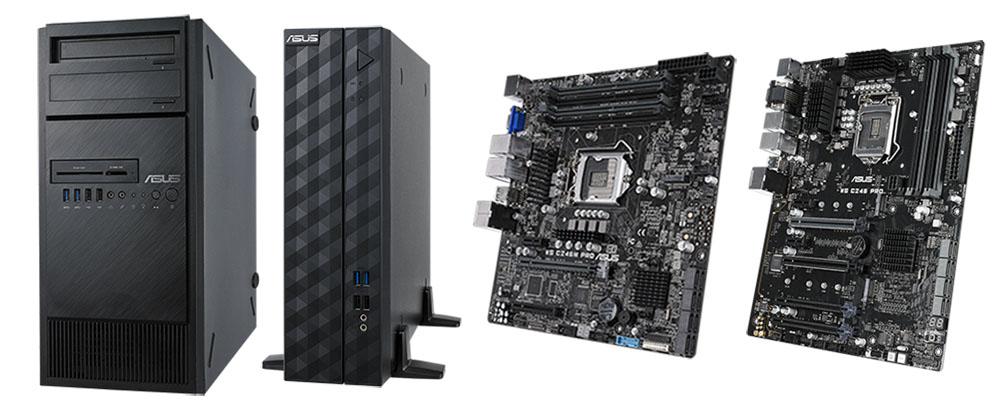Top Benefits of AMD Ryzen Server Systems
In today’s rapidly evolving tech landscape, choosing the right server hardware is more critical than ever. With increasing demands for speed, efficiency, and affordability, server systems must deliver across the board especially for businesses seeking long-term scalability and reliability. While many still default to Intel-based solutions,These server systems have carved out a prominent place in the server market.
AMD Ryzen processors, initially praised for their desktop performance, are now turning heads in the server world for their power-packed performance and cost-effectiveness. Whether it’s for small business deployments, edge computing, or cloud environments, Ryzen-based servers bring a compelling mix of features to the table.
1. Impressive Multi-Core Performance
One of the most noticeable advantages of Ryzen-powered servers is their high core and thread count. Unlike older server CPUs that focused on raw clock speed, Ryzen chips provide excellent parallel processing capabilities, which is ideal for virtualization, database operations, and multitasking environments.
These multi-core CPUs allow for seamless execution of numerous processes simultaneously without lag or bottlenecking. For businesses handling high-volume data or running virtual machines, this can significantly enhance productivity.
2. Energy Efficiency and Lower Operating Costs
Energy consumption remains a crucial factor when operating data centers or any continuous workload environment. AMD Ryzen chips are built on the efficient 7nm process, which not only enhances performance but also keeps power usage in check.
Lower power draw translates to reduced heat generation, which, in turn, minimizes the need for extensive cooling systems. The result? Long-term cost savings on energy bills, especially in high-density server racks or cloud-based infrastructures.

3. Excellent Price-to-Performance Ratio
Perhaps one of the most talked-about aspects of these processors is the unmatched value they provide.Businesses no longer need to spend excessively to get performance that meets or even exceeds their expectations.
In side-by-side comparisons, Ryzen-based servers often outperform similarly priced alternatives from other brands, giving IT teams more power without inflating budgets. This makes Ryzen servers especially appealing for startups, SMBs, and organizations looking to expand their server capabilities without breaking the bank.
4. Scalable Solutions for Varied Workloads
AMD Ryzen server platforms are highly scalable. Whether it’s a single server for file hosting or a multi-rack deployment for big data analytics, Ryzen processors adapt smoothly to different performance demands.
Systems built on Ryzen architecture support a wide range of configurations.They can be customized with different memory capacities, storage types, and network options, making them highly versatile for different workloads.
For businesses with future expansion in mind, scalability is crucial. Ryzen-based systems make it easy to start small and grow over time without the need to completely overhaul existing infrastructure.
5. Security Features Built for Modern Threats
Modern servers are increasingly at risk from cyber threats, making hardware-level security features essential. AMD integrates several security technologies directly into Ryzen chips, such as AMD Secure Processor and Memory Guard.
These features help protect sensitive data, especially in virtualized environments, where isolating virtual machines and securing memory is critical. This added layer of security supports compliance with industry standards and helps build trust with clients and users.
6. Broad Compatibility and Platform Support
One of the underrated advantages of Ryzen server systems is their broad compatibility with various software platforms and operating systems. From Linux-based distros to Microsoft Windows Server editions, these processors run efficiently across a wide array of environments.
Additionally, Ryzen systems are compatible with many standard server motherboards and components, allowing system integrators to build flexible solutions tailored to specific needs. This reduces the dependency on proprietary hardware and simplifies long-term maintenance.
7. Strong Community and Ongoing Development
AMD’s Ryzen ecosystem is supported by a large community of developers, enthusiasts, and engineers. This not only means consistent updates and BIOS enhancements but also a wealth of documentation and forums for troubleshooting.
New firmware releases continue to optimize performance, fix bugs, and introduce features, ensuring AMD Ryzen systems remain competitive as workloads evolve. Businesses can confidently rely on the ongoing development AMD brings to the table.
8. Ideal for Virtualization and Cloud Deployments
Virtualization has become a cornerstone in server management. Ryzen’s core-rich architecture makes it well-suited for virtual environments, supporting multiple instances and containers with minimal resource contention.
In cloud settings, Ryzen’s efficiency and multitasking capability allow providers to deliver fast, reliable service to clients. Many AMD CPU Based Servers are now being deployed in private and hybrid cloud infrastructures for this reason.
As organizations shift toward containerized applications and microservices, Ryzen’s balanced architecture of core count, clock speed, and efficiency makes it a solid backbone for such deployments.
Conclusion
With all these advantages in mind, it’s no surprise that Ryzen-based solutions are being adopted across industries. From their affordability and power efficiency to their flexibility and security features, Ryzen processors are meeting modern IT challenges head-on.
As organizations look for server systems that offer real-world performance without hidden costs, AMD Ryzen stands out as a trustworthy choice.
For those seeking expert support or considering a server upgrade, Cloud Ninjas offers insights and solutions that align with AMD-powered infrastructures. Their experience with Ryzen systems can be a valuable resource when planning your next IT move.









